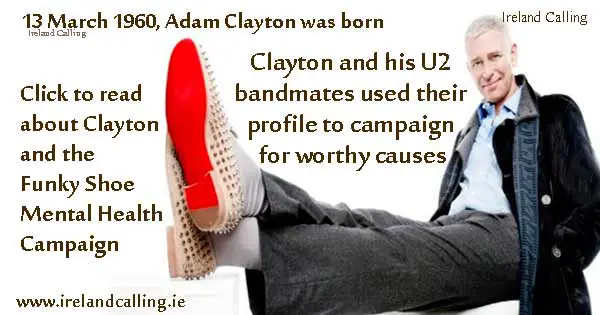march-top.html
1846 On this day, 13 March 1846, 76 tenant farmers and their families (three hundred people in total) were evicted from their homes in the small village of Ballinglass in Co Galway.
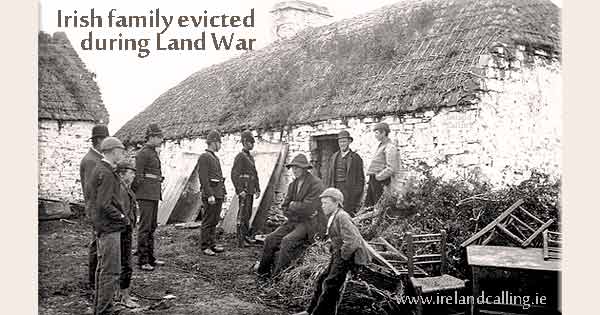
They had the money to pay their rents, but the landowner, Mrs. Gerrard, wanted to use the land for grazing, which was more profitable than renting the land. After eviction, their homes were destroyed by the police and the army, and their neighbours were not allowed to give them shelter.
Lord Londonderry, appalled at the situation, brought it to the attention of the British parliament.
 * * *
* * *
1856 Patrick Nally was born in County Mayo on this day in 1856. He was a brilliant athlete and won several events across various sports as a teenager. He had discussions with his friend, Michael Cusack about the formation of a Gaelic Athletic Association, which Cusack went on to found in 1884.
Nally became involved with the Irish Republican Brotherhood and was put in prison over disputed allegations of planning the murder of British officials. He was offered an early release if he agreed to give false evidence against Irish nationalist politician Charles Parnell, but he responded by saying:
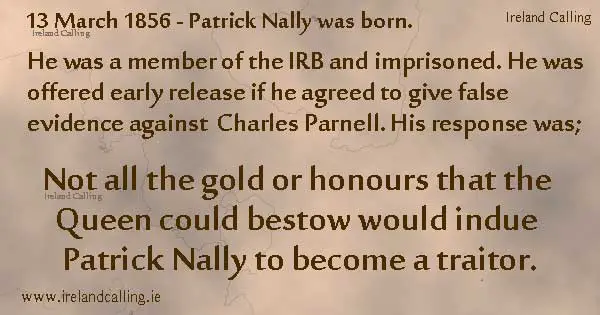
“Not all the gold or honours that the Queen could bestow would indue Patrick Nally to become a traitor.”
After serving eight years of a ten year sentence, Nally was due for release due to good behaviour. However, he reportedly died of typhoid fever shortly before his release date, but many Irish nationalists believed he was killed.
In Balla, Co Mayo there is a memorial to Patrick Nally. Parts of the inscription, the harp and the woman’s face (representing Éireann) were damaged by bullets of british soldiers in 1921. One of the inscriptions reads;
“In loving memory of Patrick William Nally of Rockstown House, Balla. Patriot & Martyr. Born 13th March 1855 and done to death in Mountjoy Prison on the ****] of his liberty 9th Nov 1881 by the brutal jailers of England after 10 years of penal torture. A **** of every manly virtue he had no enemies except the enemies of Ireland and his life was a record of unselfish patriotism. He endured fatal imprisonment with the courage of an Irish soldier. His example cherished and remembered with pride.
Such as P.W. Nally are the hope of this Nation.”
RIP.”
(**** asterisks show where the bullet damage is).
In 1953, the newly built stand in Ireland’s national stadium Croke Park was renamed the Nally Stand.
* * *
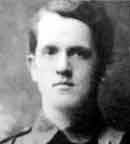 1888 Patrick Moran was born in Roscommon on this day in 1888. He was an Irish nationalist and took part in the Dublin Lock-out organised by James Larkin.
1888 Patrick Moran was born in Roscommon on this day in 1888. He was an Irish nationalist and took part in the Dublin Lock-out organised by James Larkin.
Moran was one of the rebels that took part in the Easter Rising of 1916 and was put in prison although spared the death penalty. Upon his release he founded the Irish National Union of Vintners, Grocers and Allied Trades.
He was an active member of the IRA and was arrested on charges of the murder of a British soldier during the Bloody Sunday conflict. This was despite the fact that Moran was attending a mass four miles away at the time, where he was witnessed by tens of people, including a member of the police force.
While he awaited trial in prison, Moran befriended an IRA officer named Ernie O’Malley. The two men along with a couple of other inmates managed to break a padlock on the outer wall of the prison, but Moran refused to take his opportunity to escape, believing it would be an admission of his guilt. He began singing in his cell in order to distract the guards and allow the others to escape.
He stood trial and despite the overwhelming evidence of his innocence, most notably the several witnesses that placed him at a church at the time of the murder, he was found guilty and sentenced to death.
Moran was hanged on 14th March 1921. The Archbishop of Dublin spoke out against the decision, and the Irish National Union of Vintners, Grocers and Allied Trades ordered a half-day strike to stand outside the prison on the day their former leader was executed.
Click here to read more about Irish history
Click here to read more James Larkin and the Dublin Lock-out
Click here to read more about the Easter Rising
* * *
1922 George Bernard Shaw’s play, Back to Methusaleh is performed for the first time in New York at the Old Garrett Theatre. The play is just one of a number of works by Shaw, who is regarded as one of the best writers ever to come from Ireland.
Click here to read more about George Bernard Shaw
Click here to read some of the best quotes from George Bernard Shaw

* * *
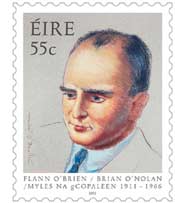 1959 At Swim-Two-Birds was published on this day in 1939. The novel, written by County Tyrone born Brian O’Nolan, failed to sell many copies initially, partly due to the outbreak of the Second World War, but in time it grew in popularity. It was named in the top 100 English-language novels by Time Magazine in 2005.
1959 At Swim-Two-Birds was published on this day in 1939. The novel, written by County Tyrone born Brian O’Nolan, failed to sell many copies initially, partly due to the outbreak of the Second World War, but in time it grew in popularity. It was named in the top 100 English-language novels by Time Magazine in 2005.
He was a native irish speaker – he didn’t speak English until he was seven years old. He wrote about the Irish love of life and their love of humour in his writing.
He wrote an Irish Times column, ‘Cruiskeen Lawn’, for 25 years – this was a humorous look at Irish life. He wrote under two nom de plume – Flann O’Brien and also Myles na gCopaleen.
On 4 October 2011, a stamp commemorating the 100 years since the birth of Brian O’Nolan was issued.
His poem “The Workman’s Friend” (sometimes known as A pint of plain) remains popular. The Workman’s Friend, ie. a pint of stout, will solve all problems!
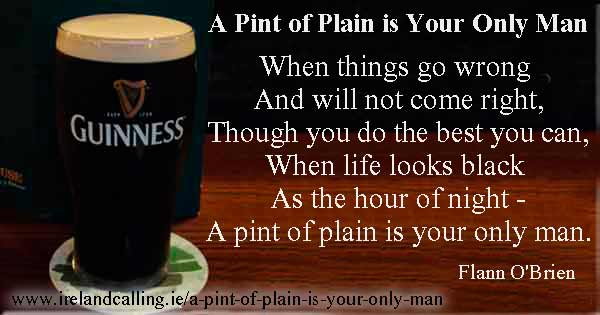
See the whole poem, The Workmans Friend, here
Here are The Dubliners reciting The Workman’s Friend – with each member reciting a verse
Find out all about The Dubliners here
An excerpt from At Swim Two Birds – Eamon Morrissey as The Brother
The main character in the book is writing about other characters – these characters don’t like how they’re portrayed…
* * *
1960 Happy birthday to Adam Clayton, born in Oxford on this day in 1960. He studied music in Dublin and was a founding member and bass player for Irish rock legends U2.
The band have been at the top of the music industry for more than three decades and released countless classic songs such as With or Without You, Beautiful Day and I Still Haven’t Found What I’m Looking For to name a few.
Clayton and his bandmates have always used their influence and profile to campaign for worthy causes.
Click here to read about Adam Clayton and the Funky Shoe Mental Health Campaign
* * *
2001 Irish farmers received a heavy blow on this day in 2001, when the US and Canada banned the import of all Irish produce due to ongoing concerns over an outbreak of foot and mouth. The loss of business was estimated to be around £100m.
march-bottom.html
